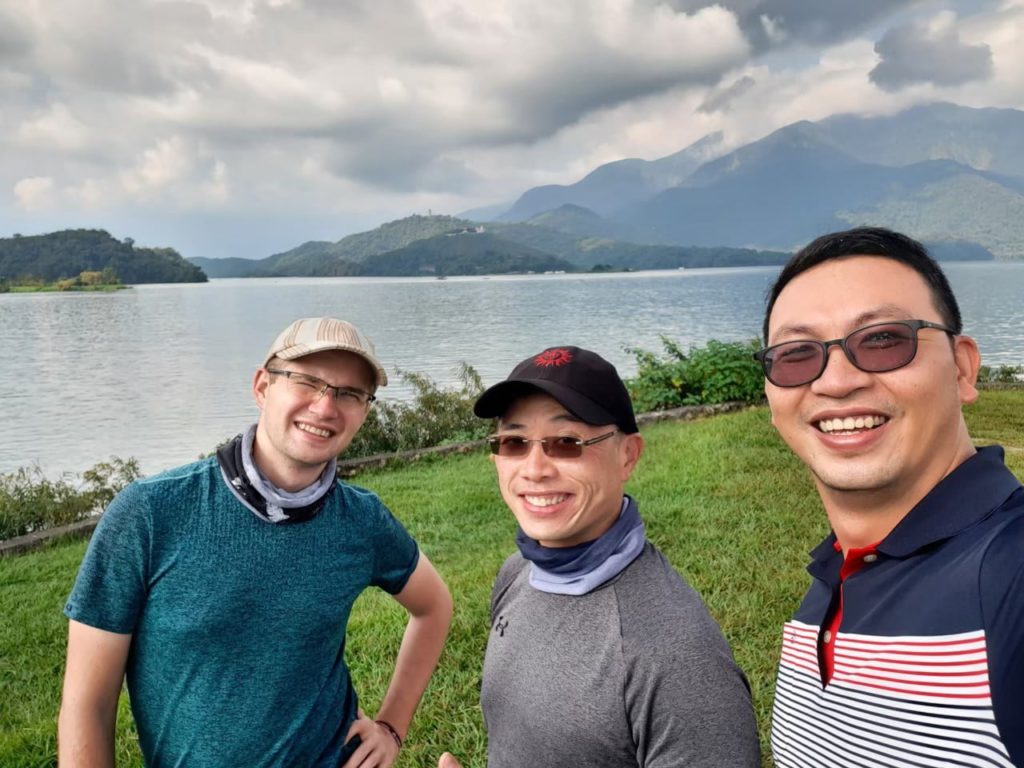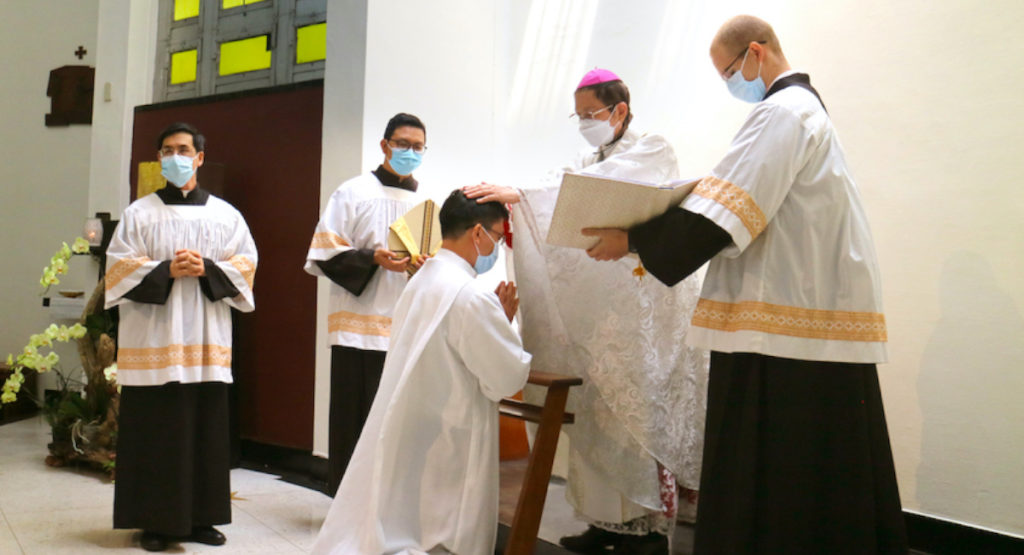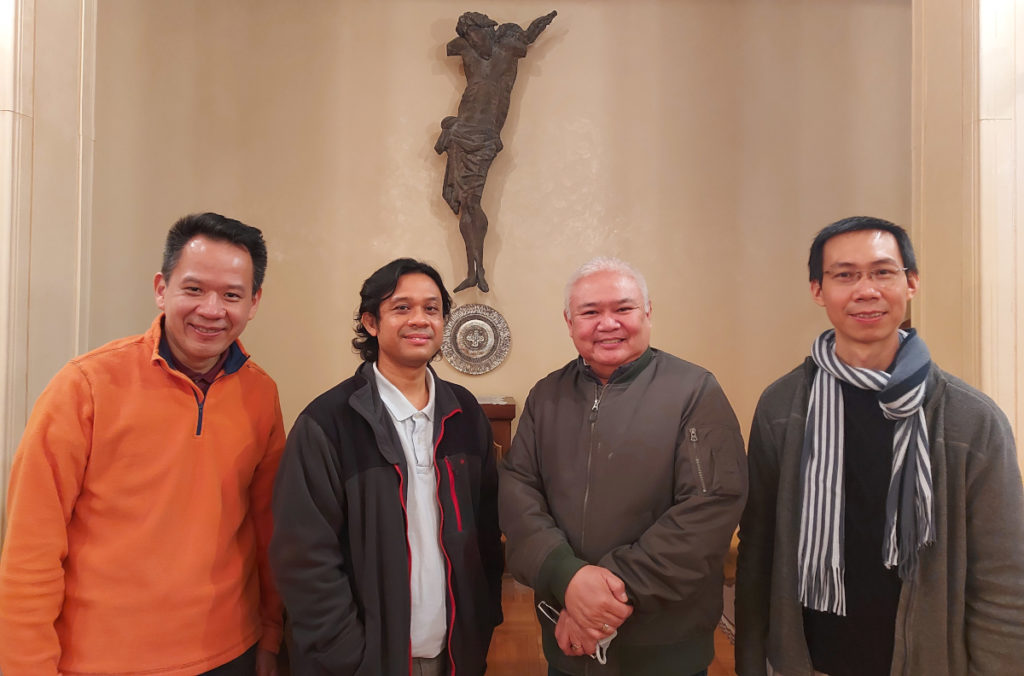The Arrupe Month is a time of grace for Jesuit scholastics. In addition to the eight-day retreat, participants have the opportunity to meet different people and listen to their vocation stories, to discuss a wide range of topics, from Ignatian Spirituality to the issues of the Church, from the longing of the faithful to the experience of waiting for a mission. This rich exchange is very helpful for scholastics in reflecting on our vocation. They help us to pray and go deeper into our own spiritual experiences.
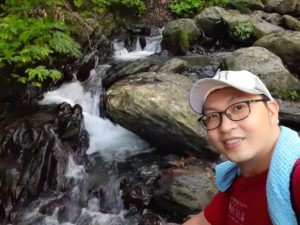 In the evenings, we take turns sharing our vocation stories through prayer and reflection. This brought me a greater sense of understanding and sympathy. It also gave me the opportunity to know myself better and reflect on how God has led me to consecrated life these last 10 years.
In the evenings, we take turns sharing our vocation stories through prayer and reflection. This brought me a greater sense of understanding and sympathy. It also gave me the opportunity to know myself better and reflect on how God has led me to consecrated life these last 10 years.
Ten years is not a short time and a lot has happened, but if I had to describe it in one phrase, it would be: Finding God in the midst of hard work.
My Provincial Superior once asked me: “Where is the easiest situation for you to find God?”
At that time, I answered: “In serving the poor and the suffering.”
This answer is real because I have felt Him through serving lepers and the mentally ill, and I have learned a lot from the poor and those in need, who have not only influenced me to know myself, but have also given me the opportunity to experience God’s love.
God’s teachings and companionship flow abundantly, and I feel God’s greatness and generosity if I open my heart and mind to be in union with Him. He continues to lead me to different people and experiences to make me realise that in the midst of suffering, sickness, and hardship, God is closer to the people. There is no need to fear or run away because we can rely on God’s strength to face and find meaning in difficulties.
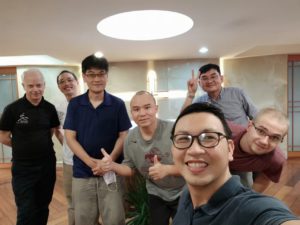 During the Arrupe Month I had time to slowly reflect on my difficult experiences, and I was filled with many wonderful feelings. In particular, these few experiences stand out.
During the Arrupe Month I had time to slowly reflect on my difficult experiences, and I was filled with many wonderful feelings. In particular, these few experiences stand out.
I once worked in a cement factory. I was assigned in different departments, but what I remember most is the time I spent in the basement doing packaging work, standing for eight hours a day. It was really challenging for me. I lost four to five kilograms, but it was a most rewarding moment when I felt the presence of God. Working in an environment where I could not get enough food, clothing, and water was the closest I felt to God.
I also spent time in a psychiatric centre helping care for about 200 patients. I was physically and mentally stretched to my limit, but it was there that I saw God’s miracles in the life of my patients.
Currently I am studying theology, and there are many hard parts in being a student. From my experience, it seems that the more demanding a teacher is and the more challenging the exams are, the more fruitful the class becomes.
In Taiwan, I often hear the phrase “you’ve worked hard” to encourage and comfort others, which is a good habit. For me though, this phrase has taken on a different meaning, that is, “the opportunity to be with God”. I consider it a blessing that gives me much strength to face difficult and hard things.
Scholastic Peter Phạm Khánh Linh SJ from Vietnam is a third year theology student at the Fu Jen Faculty of Theology of St Robert Bellarmine in New Taipei City, Taiwan. The Arrupe Month is a period of reflection and discussion that prepares Jesuit scholastics for ordination.

